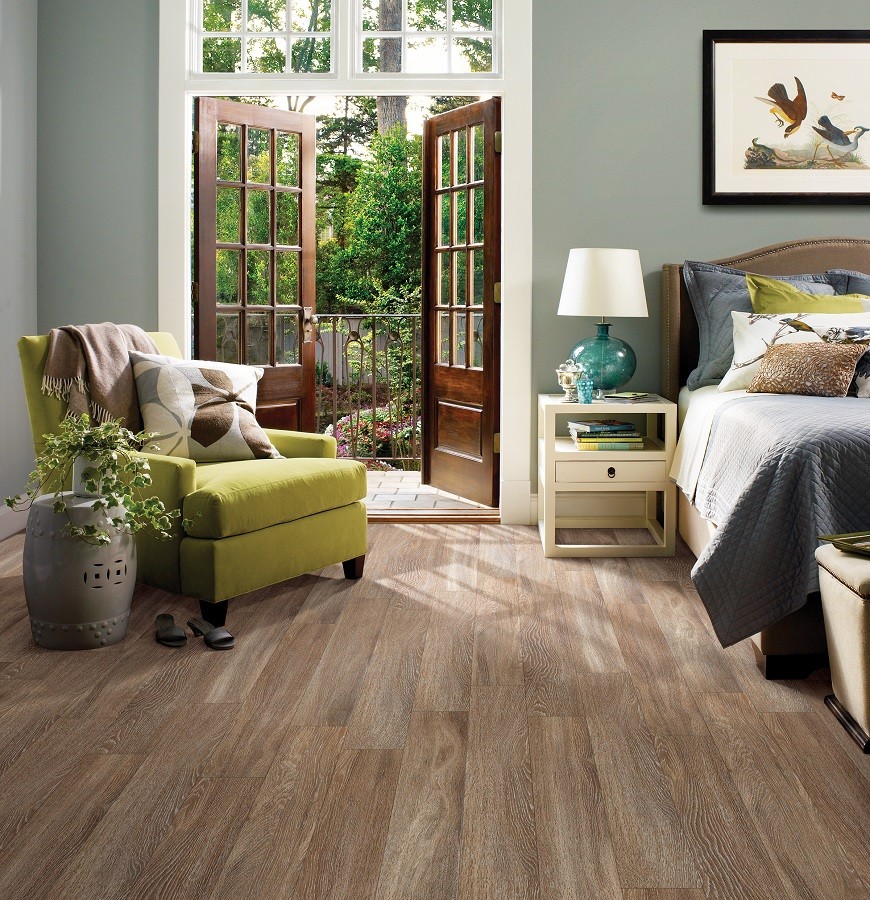Summer Hardwood Floor Care Tips
After a winter that never seemed to end, we’re finally well into summer. As we all know, summers in Indiana mean heat and most of all, humidity. At times, it can feel like we live in the jungle with all that damp air! Not only is it uncomfortable for us, it can spell trouble for your hardwood floors.
Humidity Hurts
Moisture and humidity are some of the greatest natural enemies of hardwood flooring. Wood is naturally absorbent. When the tree is alive, water moves easily within the porous wood to fuel leaves and roots. After the tree is cut and turned into flooring, it maintains the same cellular structure, which means it wants to soak up water.
In the winter, when humidity levels are lower, this isn’t so much of a problem. You might even notice minor gaps between boards or along your walls where flooring has contracted slightly. This does not necessarily mean your wood or the installation is defective, it is a natural occurrence in most wood products.
When the humidity ratchets up in the spring and summer, moisture may cause some wood floors to expand a bit as well. Hardwood flooring that has been properly installed allows for correct adequate expansion and contraction. Conversely, if proper preparations are not taken by both you and your flooring company, it is likely that you will be dealing with some unavoidable mishaps. And, unfortunately, they’re often pretty costly.
Hardwood Floor Care Tips
The most important step for a homeowner to take to prevent these expensive mishaps is to take logical precautions. To start, that means contracting with a reputable, professional flooring company. Good companies offer free professional estimates – it’s always a good idea to get two or three prices. This way, you’ll find out which company was reliable, informative, and thorough during the estimate process. The flooring professional who informs you about job readiness, i.e., relative humidity in your home, suitability of your crawlspace (if needed), ventilation, moisture content in your subfloor, etc., is your first line of defense in avoiding unnecessary moisture-related problems that could affect your new hardwood flooring.
They’ll share with you how they plan to properly prepare the floor, lay the boards and leave enough room for that inevitable expansion and contraction. A qualified flooring company will also inspect other job site conditions to make sure your home is ready for new hardwood flooring. But once past that, it’s up to you to protect your flooring by keeping temperature and interior humidity levels reasonably constant.
The National Hardwood Association recommends a year-round humidity level of 35-55% to keep your floors in the best possible condition. During the summer, humidity levels in Indianapolis can easily hit 80% or more. That means if you’ve got wood floors, invest in a dehumidifier (if needed) as well as an in-line humidifier for the colder months. You can spend as much or as little as you like on these gadgets, but finding a decent model for a few hundred dollars can protect your investment in your hardwood floors. Make sure you have an accurate humidity gauge as a backup to make sure your dehumidifier is working.
If you start to notice swelling or buckling, contact a professional flooring company like Tish Flooring. We work with homeowners in Indianapolis, Carmel, Westfield and Zionsville to install their hardwood floors right the first time.


